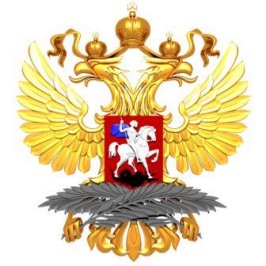On these March days, we celebrate the third anniversary of a landmark event in the modern history of Russia, which received the poetic name of the Crimean Spring.
The proclamation in March 2014 of the independence of the Republic of Crimea and its unification with the Russian Federation were a legitimate exercise of the right of the people of Crimea to self-determination following an armed coup in Ukraine and the mayhem wreaked by radical national forces that did not hesitate to use terror and intimidation on both political opponents and the population of entire regions of that country.
In these circumstances, on March 17, 2014, the Supreme Council of the Republic of Crimea, based on the results of the general referendum in Crimea on March 16, decided to proclaim Crimea an independent sovereign state, the Republic of Crimea. On March 18, the Republic of Crimea signed an international treaty to join the Russian Federation. As a result, the Russian Federation gained two new constituent entities, the Republic of Crimea and the federal city of Sevastopol.
The future has proved the legitimacy of the decision to reunite with Russia taken by Crimeans three years ago. The legality and validity of this exercise of the right to self-determination are on graphic display today, in light of the disgraceful bloody campaign waged by the Kiev regime against its own people. Extrapolating Ukrainian political realities of recent years to Crimea, it is easy to imagine what would have happened to the peninsula had it remained part of Ukraine. It is even easier to imagine if we recall the deplorable outcome of the twenty-odd years in which Crimea was part of the Ukrainian state.
Today, the task of ensuring sustainable socioeconomic development of Crimea continues to be a top priority. Over the past three years, extensive work has been done to establish and integrate the region into the Russian Federation. Active work is underway to build new and upgrade old infrastructure; a bridge is being built across the Kerch Strait; the construction of the Tavrida Motorway has begun, which will connect the Kerch Bridge to Sevastopol, crossing the peninsula from east to west. The Free Economic Zone with its preferential regime in the sphere of land relations, construction, and special terms for entrepreneurial activity creates a wide range of opportunities for investors in Crimea.
There is a trend toward economic growth, including through developing the energy and recreation sectors, and expanded housing construction. Industrial output is higher and unemployment is lower than the average for Russia. These are important economic and social development indicators. With regard to Crimea, this includes jobs and good salaries for the Crimeans, and innovative products made by local enterprises. All of these changes have taken place amid the sanctions imposed on the peninsula by Western countries, as well as unending provocations on the part of Ukraine, including attempted water and energy blockades and severing air, sea, passenger rail and mail services.
The situation on the peninsula is not perfect. However, despite objective difficulties, the federal and local authorities have already done a lot to improve the life of Crimeans and to ensure the comprehensive development of the peninsula as part of Russia. Still, more needs to be done.
Crimea has fully preserved its multinational population. Russians, Ukrainians, Crimean Tatars, and representatives of other ethnicities who have been living on the peninsula from time immemorial, are building a future together in peace and harmony. Since 2014, Russian, Ukrainian and Crimean Tatar have been official languages in the Republic of Crimea.
Over the past three years, Russia has been attending to and promoting the socioeconomic, cultural, religious and other interests of all the peoples and ethnicities living in Crimea at the micro and macro levels. This includes Armenians, Greeks, Crimean Tatars, Italians, Germans, and, of course, Russians and Ukrainians. The efforts of the authorities to strengthen interethnic stability are clearly visible to an unbiased observer. As a result of this policy, according to opinion polls, more than 90 percent of Crimeans say they do not experience any significant interethnic tension in their daily life.
The past three years have clearly shown that despite all the difficulties and controversy with regard to Crimea, there is strong interest in developing cooperation with the peninsula on the part of foreign parliamentary, business and sociopolitical circles, as well as representatives of culture, sports and the media. In particular, over 100 foreign delegations visited Crimea last year as compared to 73 in 2015, and over 70 international events were held.
Preserving its uniqueness and boasting vast potential for development, Crimea attracts attention not only by its remarkable natural beauty and cultural and historical heritage sites of international importance, but also by the hospitality of its people, who are open to dialogue and cooperation.
Anyone can form an impartial opinion of their own by visiting Crimea and Sevastopol and seeing for themselves the actual state of affairs in these two constituent entities of the Russian Federation.























